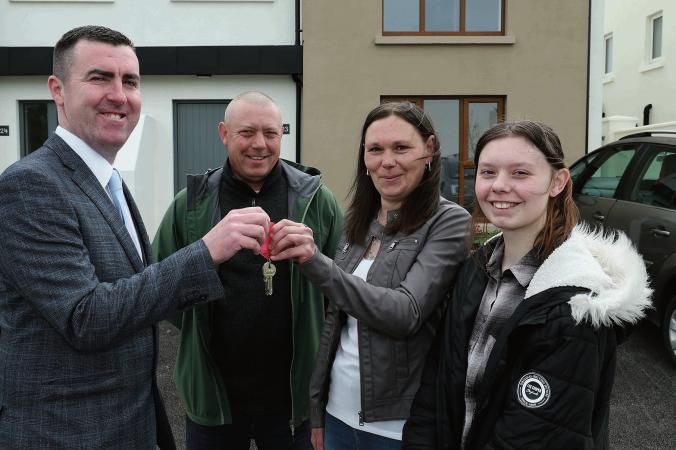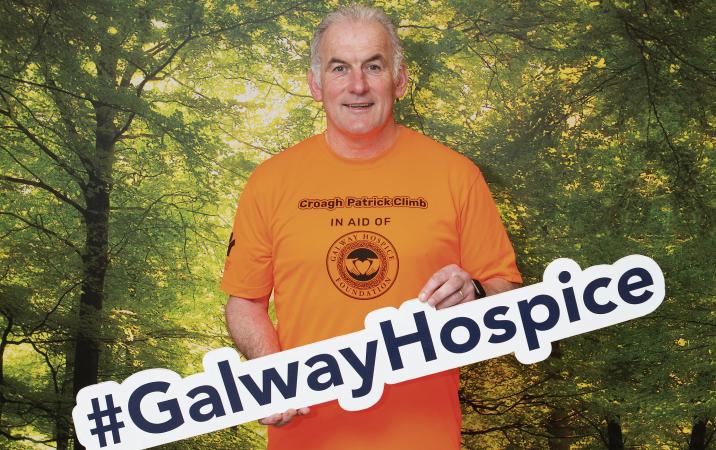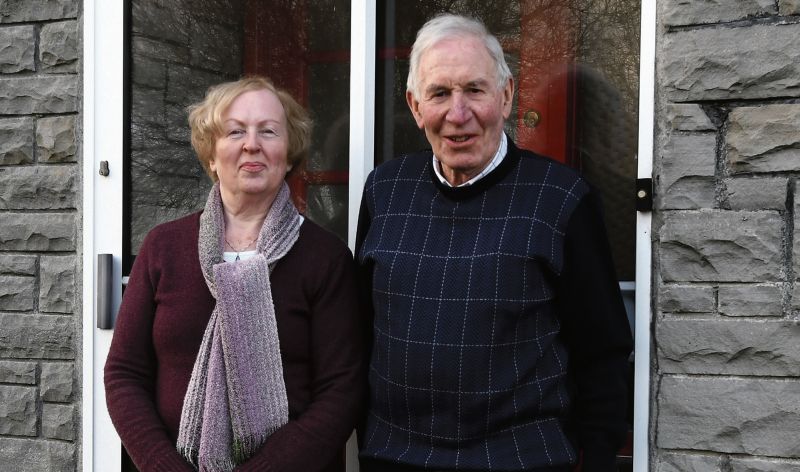-
-
Author: Our Reporter
~ 5 minutes read
By Fergal Lenehan
It was easy to tell people my dad was a guard. Everyone knows what a policeman does, more or less; tortured, guilt-ridden and self-destructive police detectives are at the centre of popular culture.
Dad wasn’t a detective, nor was he tortured, guilt-ridden nor self-destructive; he was a uniformed sergeant in the small east Galway village of Kiltormer. But then he became a Weights and Measures Inspector in nearby Ballinasloe. Not only did a reservoir of instant cultural references suddenly disappear, but the other children at school did not even know what a Weights and Measures Inspector does.
A Weights and Measures Inspector, as the name would surely suggest, has to inspect the weights and the measures that people use in their daily lives and make sure that they’re correct.
Since the late 1990s, this has been taken over by civilian staff and is now undertaken in Ireland by the National Metrology Service. Until then it was done by individual Gardaí who divided the country up into different units.
My dad had to test the scales and pumps in every shop and filling station in East Galway every year. For service stations he used a special bronze container which he would fill with petrol, and which contained a glass scale telling him what the measurement was. This was often in the boot of our family car, and I used to love its petroly smell.
For measuring scales, he had a chest, a bit like a treasure chest, which was heavy and contained a variety of different iron weights. He also had to test the scales in the mart every six months, but here he would need special large weights, and people from the county council would bring these on a truck.
He also had to measure pint glasses for a bar supply business in the north of the county, and then would sandblast a symbol of the measurement onto the glass, giving each a seal of government approval.

Dad, as Weights and Measures Inspector, was also a local agent of Europeanisation in Ireland.
The standardisation of weights and measures is actually relatively new, and a product of the move towards rationalisation and science in the Age of the Enlightenment in the 17th and 18th centuries.
The British Empire, including Ireland, began using imperial measurements as first defined in 1824 by the British Weights and Measures Act. This formalised the imperial measurements of pounds, ounces, pints, yards, feet and miles.
Following the revolution in the late 18th century the metric system was developed in France. Using a logic oriented towards 100s and 10s, the metric system formalised kilograms, litres, metres and kilometres.
In the wake of Irish entry into the European Economic Community in 1973, the metric system was also introduced into Ireland as the weights and measures system which most of Europe used.
This also meant a transition period in which both systems existed side by side, placing weights and measures inspectors of the 1970s, 1980s and 1990s as the avantgarde of everyday practical Europeanisation.
Inspectors had weights and measures for both systems while Ireland slowly transitioned, more or less, from the British to the European system, and good use was made of notebooks which contained detailed information on each system.
While Weights and Measures Inspectors do not have the fictional presence of tortured detective policemen, a fictional Inspector does, however, feature in an important work of European literature, by the Austrian writer Joseph Roth.
Roth’s 1937 novel Das falsche Gewicht, meaning literally “the wrong weight” but more generally translated into English as Weights and Measures, centres on a Weights and Measures Inspector called Anselm Eibenschütz in the most eastern corner of the Austro-Hungarian Empire. The novel is set in Roth’s home region of Galicia, which is now part of south-eastern Poland and western Ukraine.
The region’s capital city was then called Lemberg by the Austrian administration but is now more usually called Lviv and has become a place of refuge in western Ukraine for Ukrainians fleeing Russian attack. Lviv has constantly appeared in the news since 2022. Roth however was a German-speaking Jew who grew up among the majority Polish and Ukrainian-speakers.
Roth’s Weights and Measures Inspector protagonist Anselm Eibenschütz is a conscientious man who wants to do his job well and is accompanied every day in his work among the region’s shopkeepers by an Austrian soldier, armed with a rifle and bayonet.
Amid the darker narrative elements of Roth’s novel, the protagonist’s wife gives birth to someone else’s baby, Eibenschütz falls hopelessly in love with a woman working in a bar at the Russian border, while the Weights and Measures Inspector descends into alcoholism (similar to the author Roth) when this love affair does not progress as he wishes.
It is also clear upon Eibenschütz’s arrival in the region that Enlightenment ideas surrounding new weights and measurement systems had not made their way to this part of the Austro-Hungarian Empire, and he begins a series of arrests as basically everyone who uses weights and measures in a public commercial context gives the “wrong weight”.
According to my dad, East Galway in the 1980s and the early 1990s was not at all comparable to Habsburg Galicia at the tail-end of the Austro-Hungarian Empire, as depicted by Roth.
He did not need a uniformed soldier with a rifle and bayonet to accompany him and during his time as Weights and Measures Inspector he never once had to make a prosecution.
Fergal Lenehan is a university researcher based in Germany. He grew up in Kiltormer, where his father PJ was the Garda Sergeant, and moved to Ballinasloe at the age of ten, when PJ became Weights and Measures Inspector for East Galway. His parents, P.J. and Phil Lenehan, live in Creagh, Ballinasloe.
For more, read this week’s Connacht Tribune:
Connacht Tribune Digital Edition App
Download the Connacht Tribune Digital Edition App to access to Galway’s best-selling newspaper. Click HERE to download it for iPhone and iPad from Apple’s App Store, or HERE to get the Android Version from Google Play.
Or purchase the Digital Edition for PC, Mac or Laptop from Pagesuite HERE.
Get the Connacht Tribune Live app
The Connacht Tribune Live app is the home of everything that is happening in Galway City and county. It’s completely FREE and features all the latest news, sport and information on what’s on in your area. Click HERE to download it for iPhone and iPad from Apple’s App Store, or HERE to get the Android Version from Google Play.
More like this:

Moycullen bypass roundabouts being changed as drivers “not using them correctly”
The roundabouts on the Moycullen bypass are being changed – because drivers aren’t us...

County Cathaoirleach and Oranmore councillor Liam Carroll announces retirement from local politics
County Cathaoirleach and Oranmore councillor Liam Carroll has announced he is retiring from local...

Ardrahan woman honoured with IACP Western Regional Award
An Ardrahan woman has won a Western Regional Award from the Irish Assosication for Counselling an...

Slight decrease in complaints made to Ombudsman for Children by young people in Galway
There has been a slight decrease in the number of complaints made to the Ombudsman for Children f...

ATU to host Digital Innovation in Sport conference at Galway campus
ATU is to host a conference about Digital Innovation in Sport at its Galway Dublin Road campus th...

New 22-home social housing development officially opened in Glenamaddy
Dozens of families are celebrating a new chapter in their lives after a new 22-home social housin...

Former convent could soon be cultural space
There was unanimous support from area councillors at their final meeting for a funding applicatio...

Former Connacht and Ireland out-half signs up for Galway Hospice Croagh Patrick Climb
Rugby legend Eric Elwood plans to tackle Croagh Patrick this summer – to raise money for Galway H...

Galway County Council honours Keith Finnegan with civic reception
Galway County Council has honoured Galway Bay fm’s Keith Finnegan with a civic reception fo...
Sign Up To get Weekly Sports UPDATES




